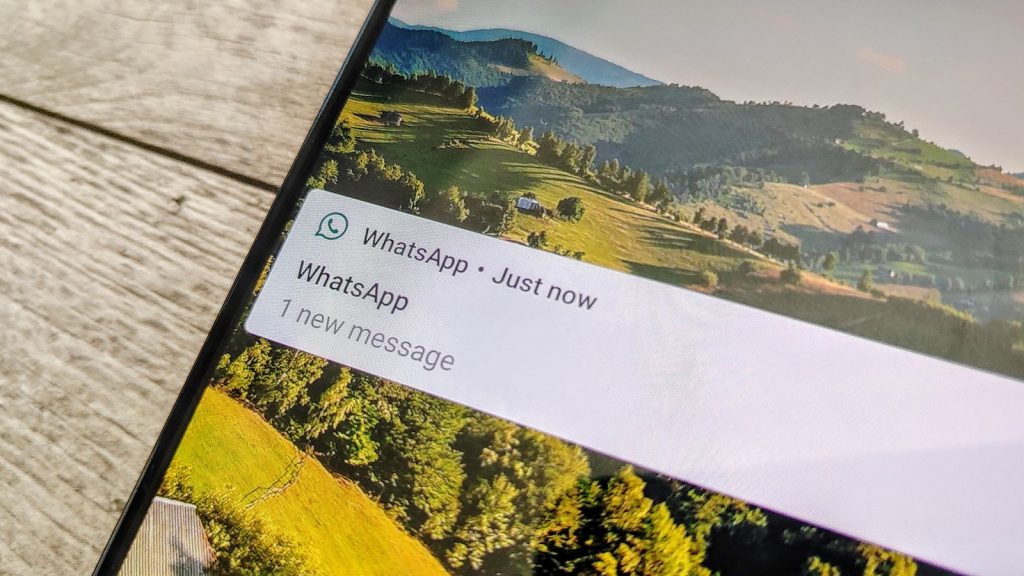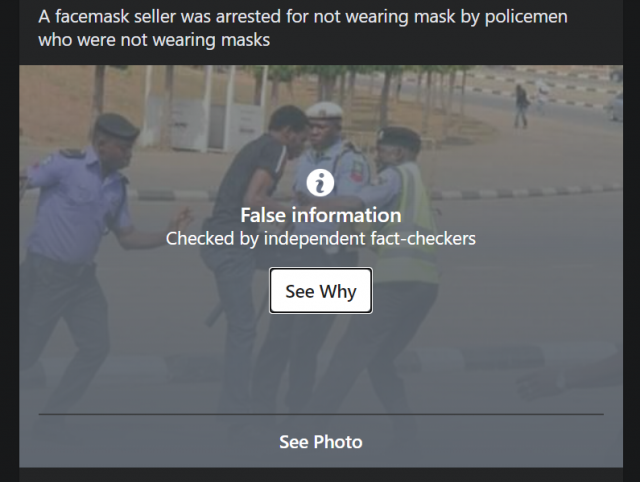AI is disrupting education. But despite what the headlines (and some ChatGPT horror stories) might suggest, South African teachers aren’t being replaced — they’re…
WhatsApp: 5 things to do before forwarding a message

While forwarding messages on WhatsApp is a useful way to share information, it’s also a major ingredient in the spread of fake news and misinformation.
It may seem harmless to share “just in case” something is true, but this is what scammers, fake news outlets, and malicious actors are relying on. It’s the reason Whatsapp introduced forward limits at the start of the COVID-19 pandemic.
So how do you know if you should forward that message you received? Here are five things to do before forwarding a WhatsApp message.
1. Identify who wrote the message
You can tell that a message is forwarded when it has an arrow icon next to the text “Forwarded” at the top of the message. If you don’t know who originally wrote the message and the person forwarding it to you doesn’t know either, it’s very difficult to verify that it’s true.
Africa Check notes that asking yourself “Who wrote it?” is one of the first things you should do when you receive a forwarded WhatsApp message.
When the message has no specified author and you don’t know who wrote it, rather don’t forward it.
If the message claims to be written by a specific person, asks yourself a few questions:
- Can you verify that they actually wrote it?
- Is a WhatsApp message the platform the author would use as opposed to official channels?
For example, a ward councillor for a small area may distribute a message to their constituents via a WhatsApp message. But they would likely share it on Facebook and their other social media channels.
However, a public figurehead, such as an official from a hospital or the health department, would likely choose official channels to share messages and announcements. They would use platforms to share information directly with the public. For example, they would use press releases, public briefings, and verified social media accounts.
#COVID19 |🚨FAKE NEWS ALERT🚨 pic.twitter.com/FGtq1cY3KQ
— Athi Geleba 🇿🇦 #StaySafe (@AthiGeleba) May 7, 2020
But WhatsApp messages are the least likely channel they would use. After all, this relies on people forwarding their message on, rather than making it accessible directly to the public.
2. Don’t trust WhatsApp images and videos without context
Seeing is believing. But this doesn’t mean that the things you see in images or videos aren’t manipulated or missing context.

Often people share images with false contexts and descriptions. While the image may be real, the description can be misleading.
Furthermore, if a video doesn’t give a clear picture of what’s happening, you shouldn’t assume that the forwarded message provides the correct context.
Verify these images and videos by looking for reporting by trusted media sources and journalists. You can also use Google’s reverse image search tools to see if an image has appeared elsewhere on the web before.
Screenshots of headlines, tweets, and stories can also be edited. Rather check that these headlines and announcements actually exist.
Something important to note regarding coronavirus #Coronavirus #CoronaVirusSA pic.twitter.com/zyM300N2bN
— Megan Ellis, Tech Harpy 🧙🏻♀️ (@Megg_Ellis) March 28, 2020
3. Don’t forward WhatsApp messages that ask you to
One of the clearest signs that a message is a scam or hoax is the request to forward the message on.
In fact, WhatsApp identifies instructions to forward the message as a common feature of deceptive messages in their hoax messages security guide.
4. Check your gut reaction
FAKENEWS ALERT !!!President @CyrilRamaphosa has NOT asked foreign nationals to leave South Africa . The President has NOT said the #lockdown will be extended by the “ government of South Africa “ by three months , starting on 21 June . “ . The WhatsApp post below is fake news . pic.twitter.com/cP1WlahlKj
— Minister Jackson Mthembu (@JacksonMthembu_) April 7, 2020
Forwarded hoaxes rely on creating a knee-jerk reaction that motivates a user to forward a message. The easiest way to do this is by causing fear, anger, or bias confirmation.
Many hoaxes want you to feel angry or scared so that you will share them far and wide. Meanwhile, hoaxes and fake news often also lean into societal biases and stereotypes to go viral.
After all, if it makes you emotional, you’re less likely to double-check the information or notice inconsistencies.
This is far from harmless. It sows division between people, reduces trust in governance, and allows malicious actors to take advantage of existing tensions for their own purposes.
5. Search trusted sites to verify information
If you receive a forwarded message about an event, new regulation, or health information, use a search engine to verify whether it’s true. However, stick to trusted websites that have a track record of providing accurate news and information.
Blog posts and fringe websites don’t have the same fact-checking standards as professional news organisations. Furthermore, if a site is trying to sell you something related to the story, it’s unlikely to provide accurate information.
For example, a website selling miracle cures will likely have medical misinformation.
How to check whether WhatsApp messages are hoaxes
Fact-checking websites frequently debunk hoaxes on social media and WhatsApp. AfricaCheck runs a weekly podcast sent via voice note called What’s Crap on WhatsApp that rounds up some of the hoaxes and misinformation shared on WhatsApp.
You can also submit messages to fact-checking organisations on WhatsApp. You can ask Africa Check to fact-check a message by contacting the organisation on WhatsApp at (+27) 073 749 7875.
Feature image: Megan Ellis/Memeburn


